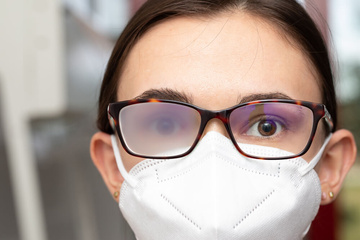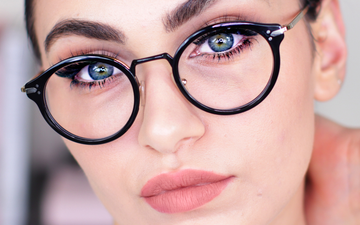In today’s digital age, many of us spend hours staring at screens before bed—whether it’s our phones, laptops, or TVs. While this habit seems harmless, the blue light emitted from screens can significantly disrupt your sleep. Blue light blockers, such as glasses with specialized lenses, offer a simple solution to this problem and may improve your overall sleep quality. Let’s explore how they work and why you should consider using them.
What is Blue Light and How Does It Affect Sleep?
Blue light is a high-energy, short-wavelength light that’s emitted naturally by the sun but also artificially by digital screens and LED lighting. During the day, blue light helps regulate our circadian rhythm (our body’s internal clock) and keeps us alert.
The problem arises at night when exposure to blue light tricks the brain into thinking it’s still daytime. This suppresses the production of melatonin, the hormone responsible for making you feel sleepy. As a result, it becomes harder to fall asleep, stay asleep, and wake up feeling refreshed.
How Blue Light Blockers Work
Blue light blocking glasses have lenses specifically designed to filter or block out blue light wavelengths. By wearing them in the evening, you can minimize the disruptive effects of blue light on melatonin production and improve your chances of a restful night’s sleep.
Here’s how blue light blockers can help:
Regulating Melatonin Levels: By reducing blue light exposure, your body can produce melatonin naturally, helping you feel drowsy when it’s time for bed.
Reducing Eye Strain: Blue light can cause digital eye strain, leading to discomfort that might keep you from winding down at night. Blue light glasses ease this strain, allowing for a more relaxed pre-sleep routine.
Improving Sleep Duration and Quality: Studies show that individuals who limit blue light exposure before bed experience deeper, more restorative sleep cycles.
When Should You Wear Blue Light Blockers?
To maximize their benefits, consider wearing blue light blocking glasses during these times:
1–2 hours before bedtime: This gives your body enough time to produce melatonin naturally.
During late-night screen use: Whether you’re working or scrolling through social media, blue light blockers will minimize screen-related sleep disruption.
Under artificial lighting at night: LED bulbs and fluorescent lights also emit blue light, so wearing your blockers indoors can be helpful.
Other Tips for Reducing Blue Light Exposure
While blue light glasses are highly effective, combining them with good habits can further improve your sleep:
Use “Night Mode” on Devices: Most smartphones and computers now offer settings that reduce blue light.
Limit Screen Time Before Bed: Try reading a book or practicing meditation instead.
Create a Sleep-Friendly Environment: Dim the lights in your home as bedtime approaches.




